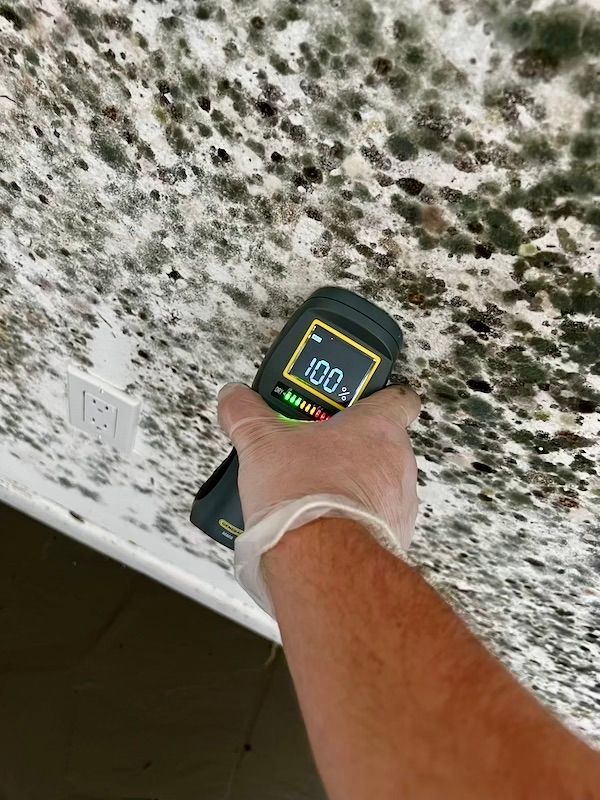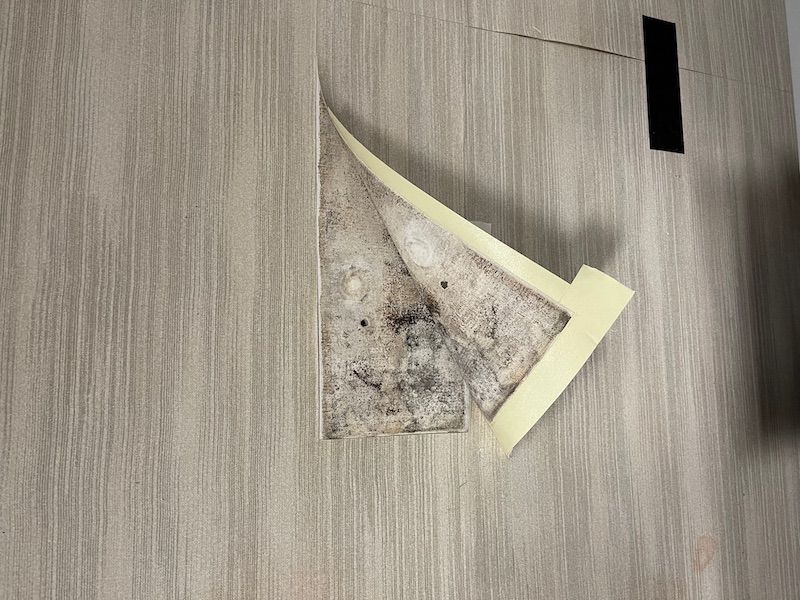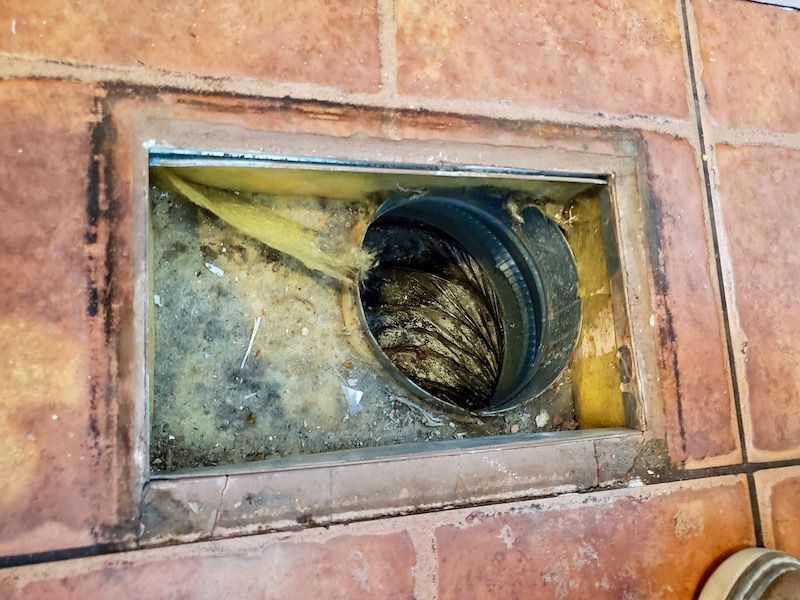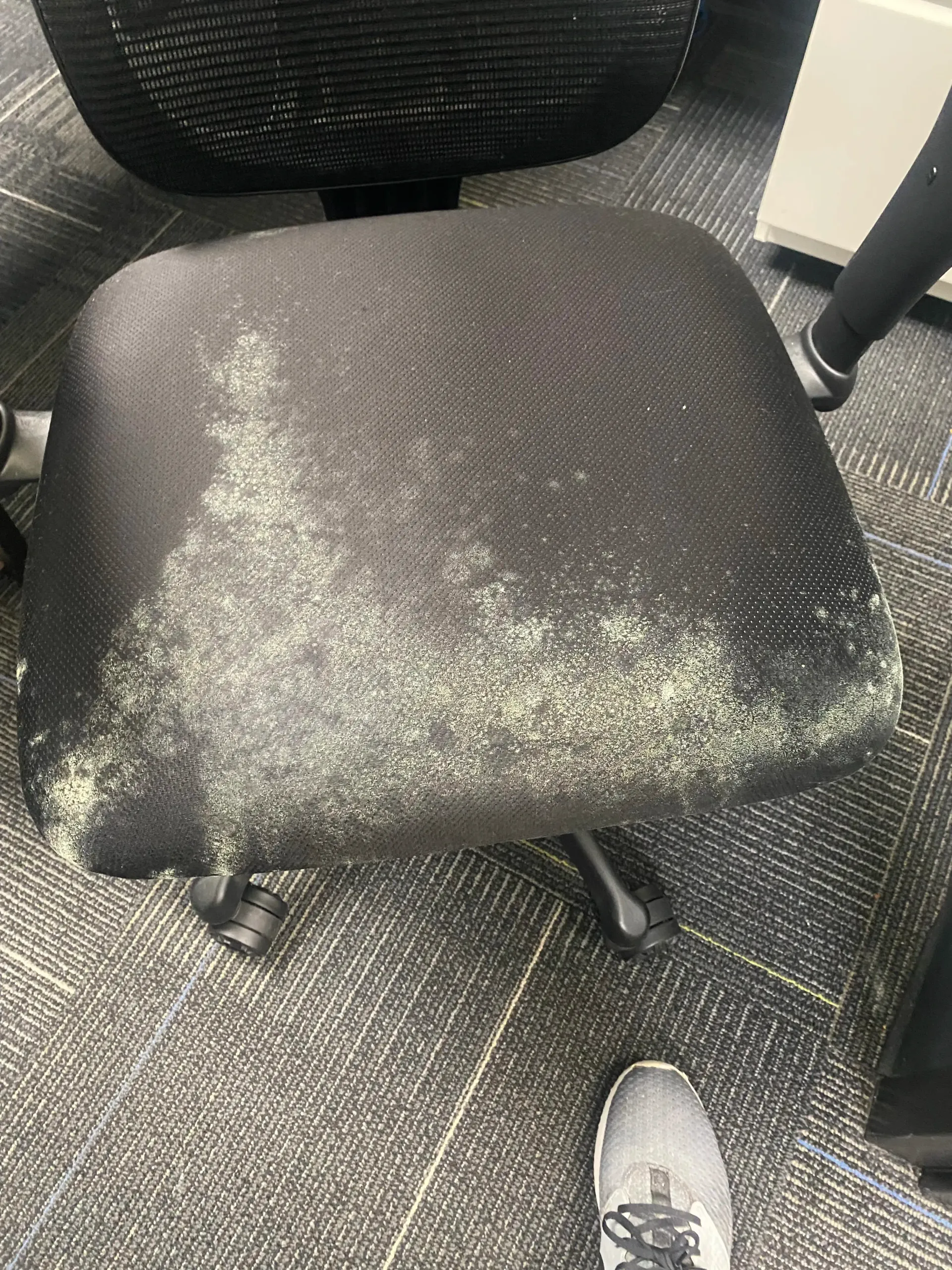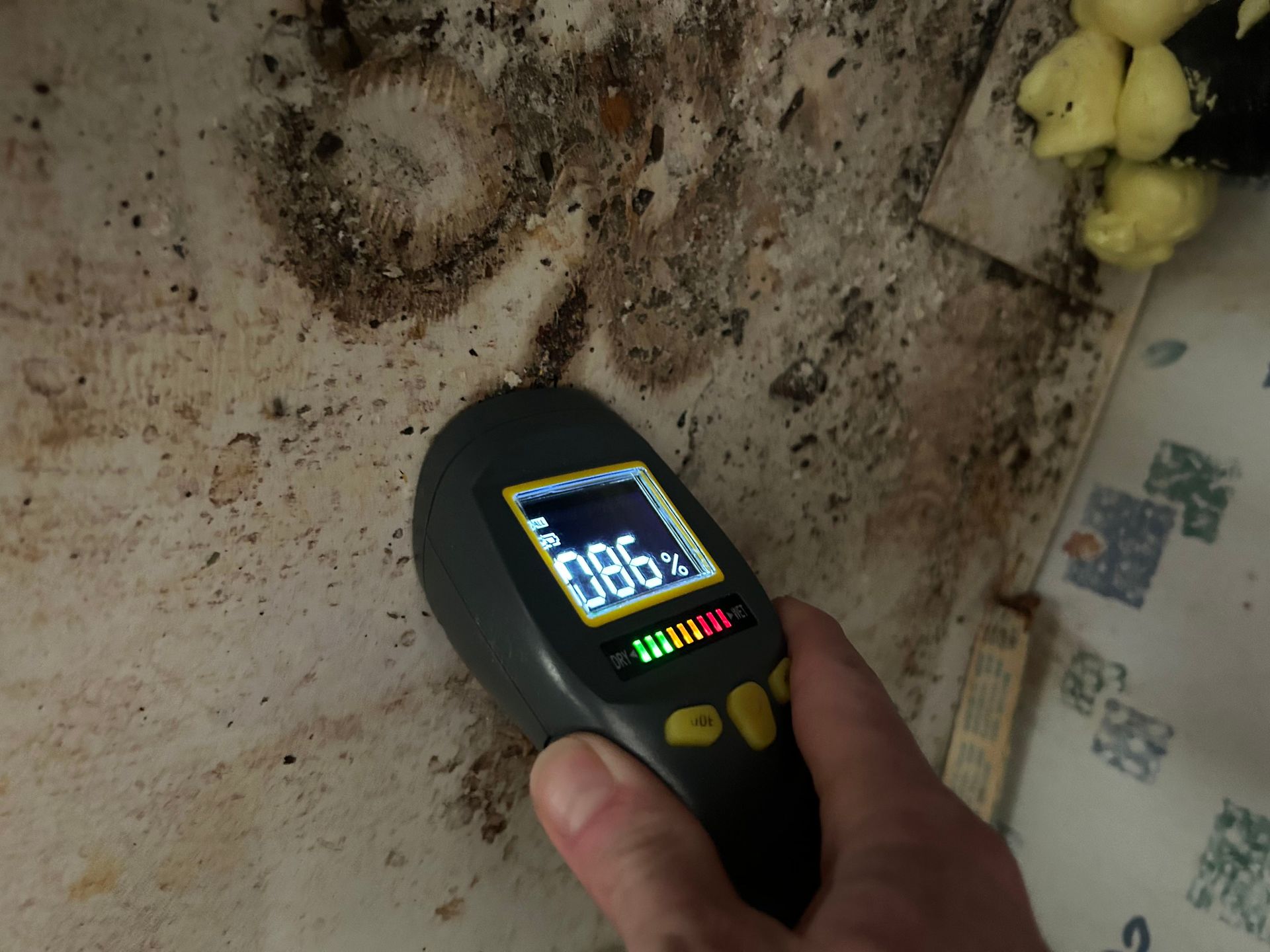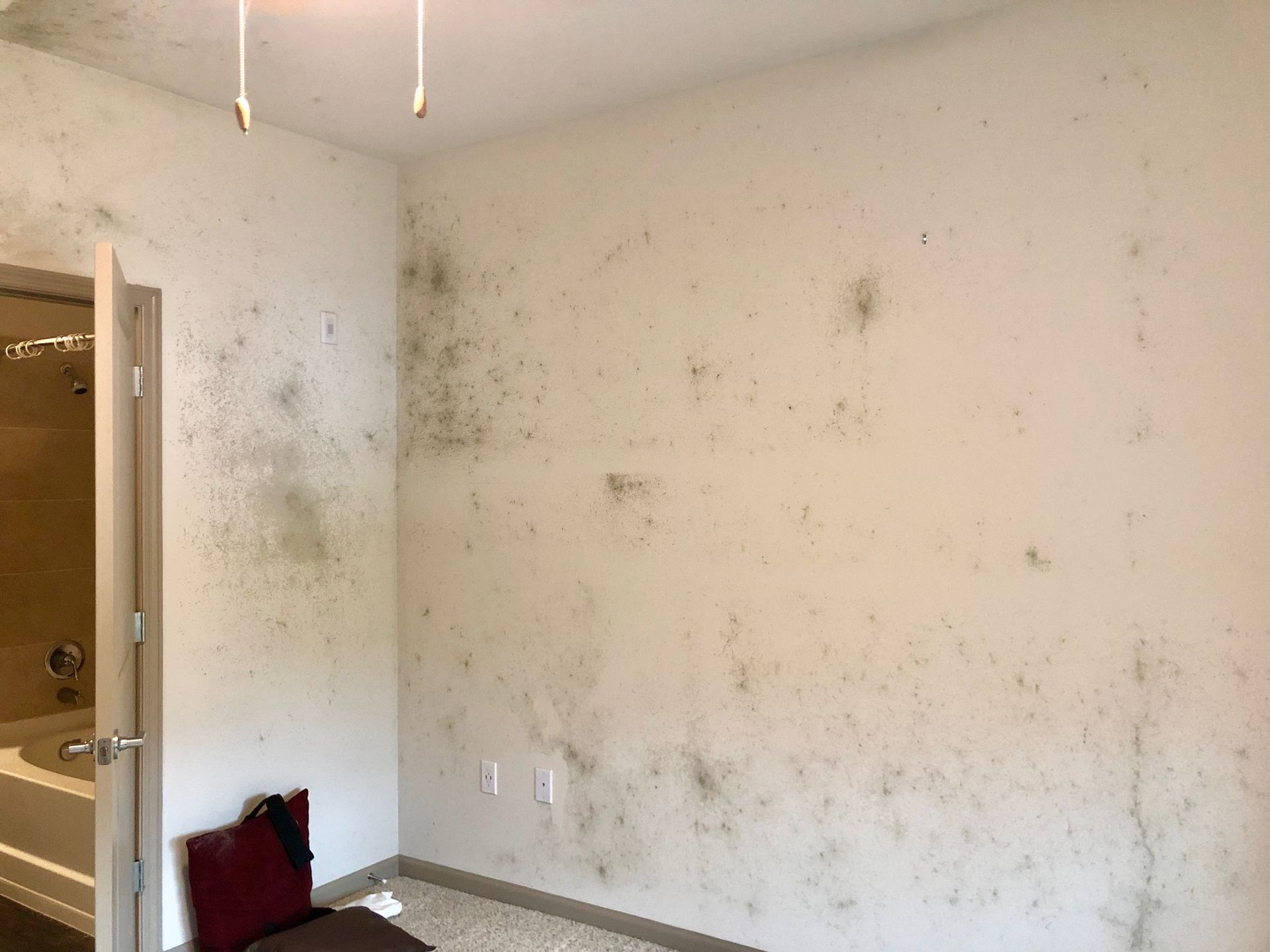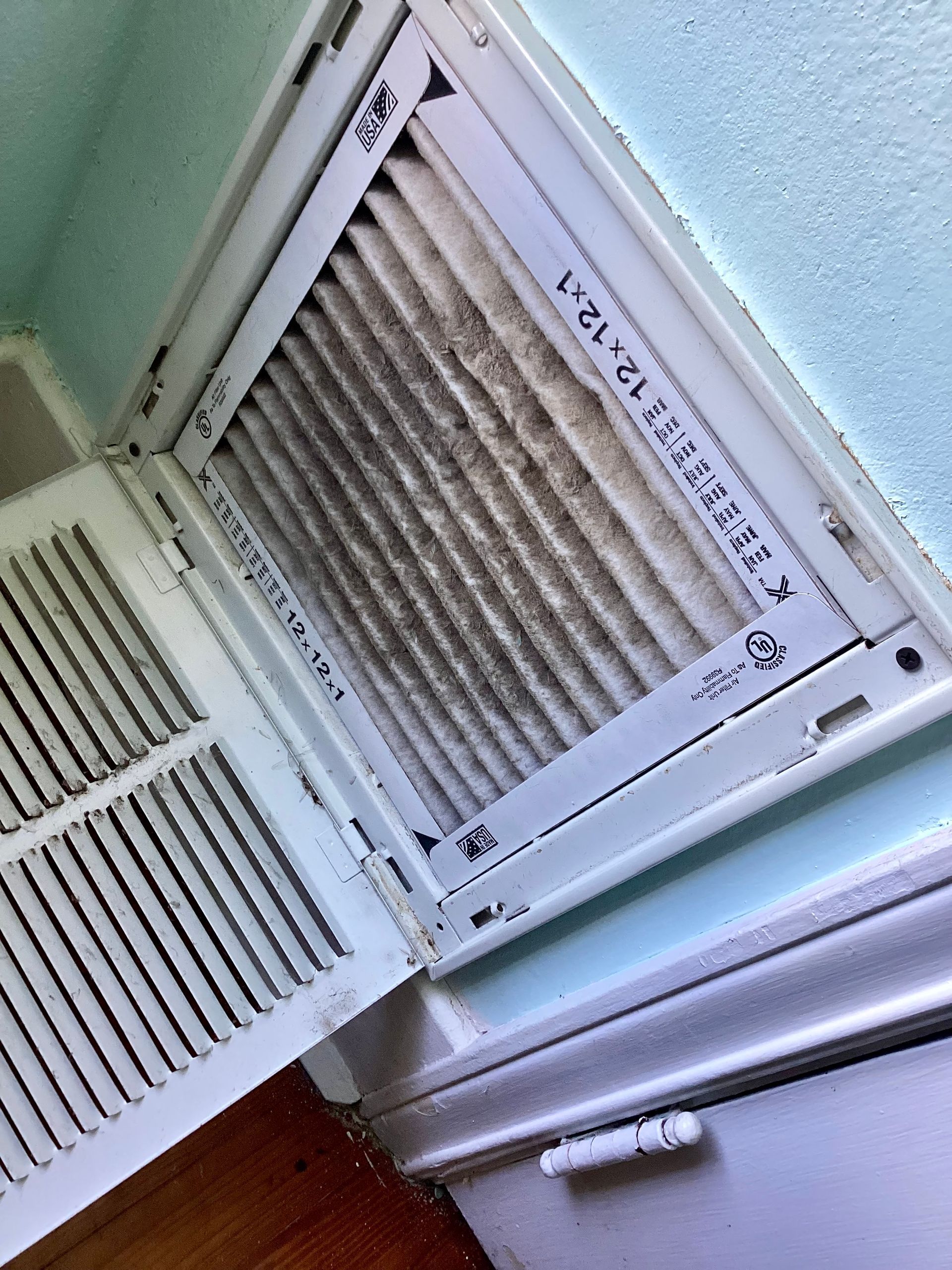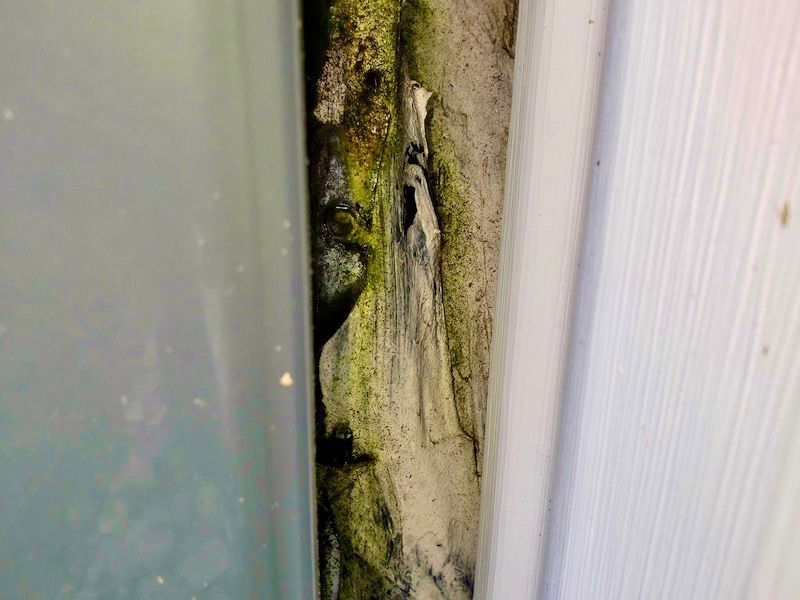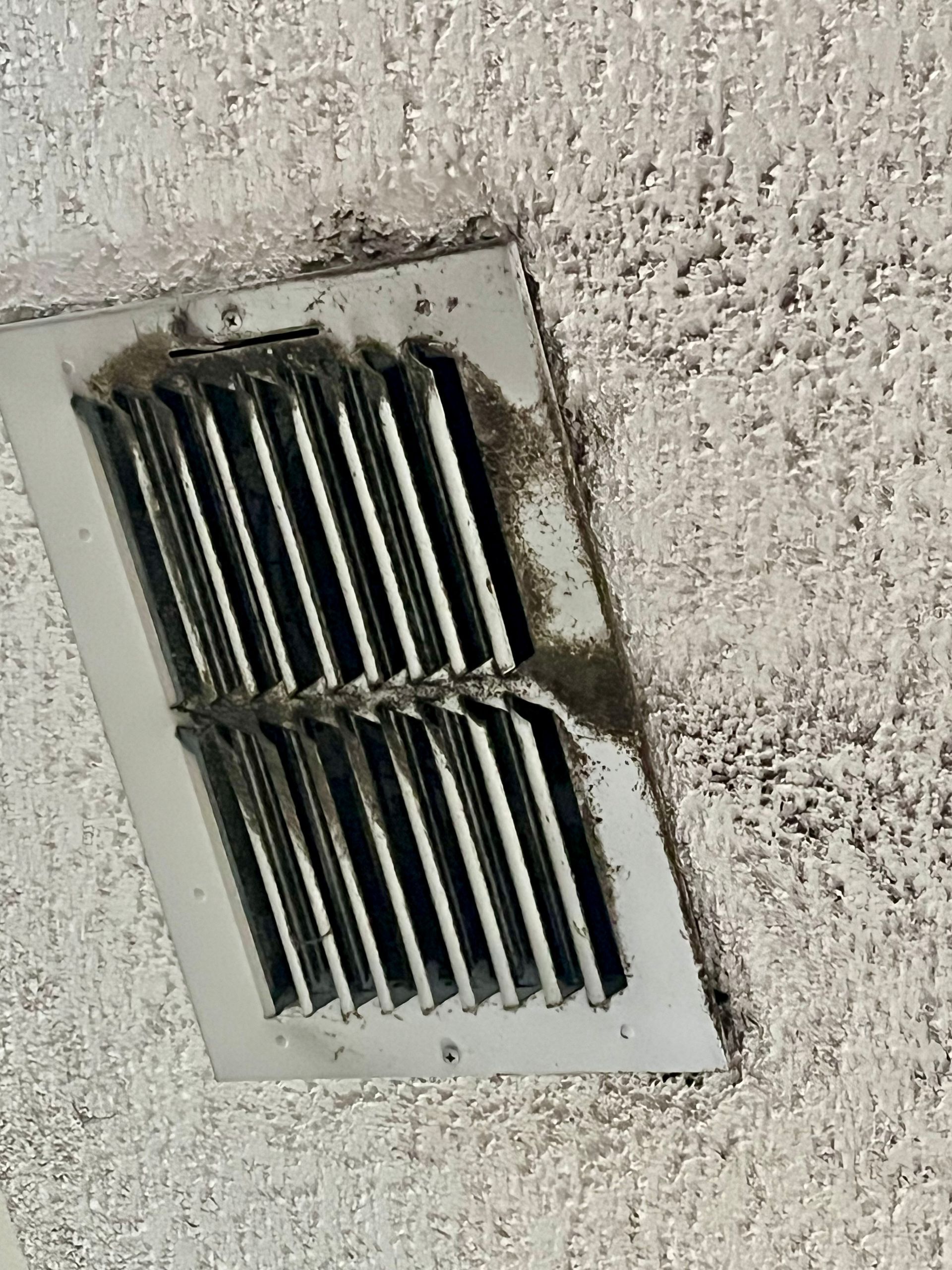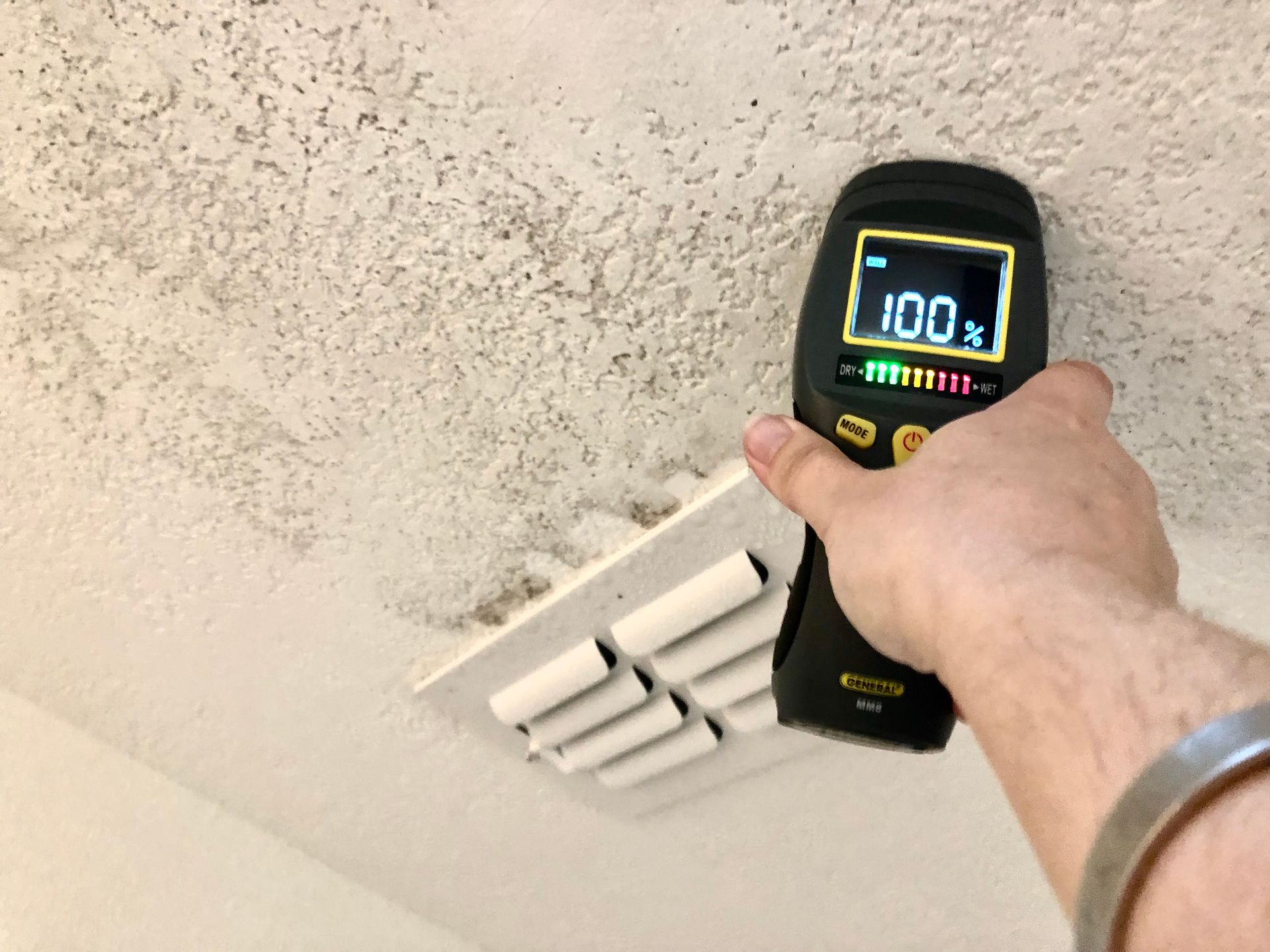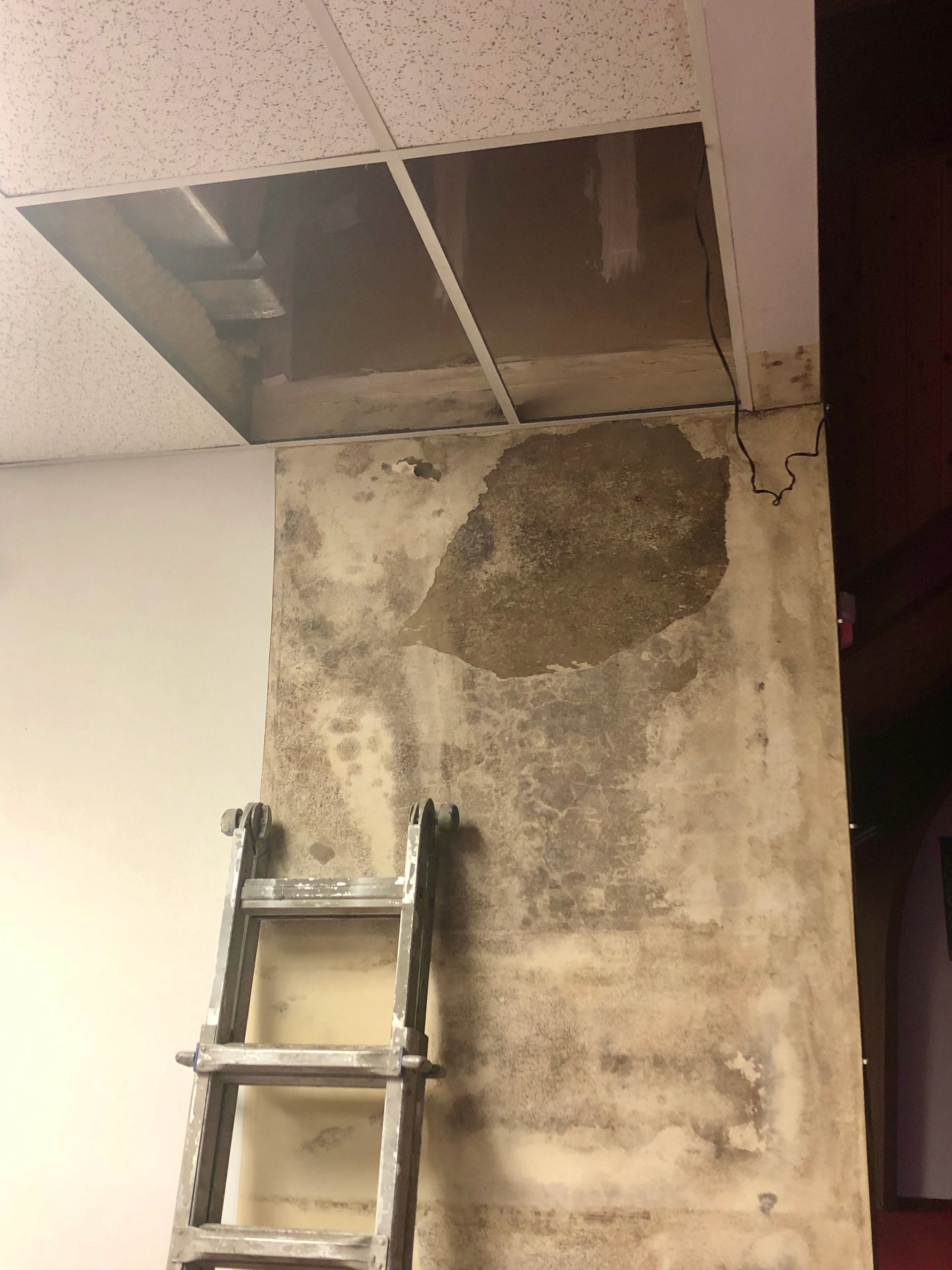What Is Black Mold?
Black mold is a general term used to describe common molds found in residential and commercial buildings. Scientifically, what we commonly refer to as ‘black mold’ is
Stachybotrys chartarum or
Stachybotrys atra.
For some sensitive individuals, exposure to the spores of
Stachybotrys chartarum (S. chartarum)
and other mold spores can result in unpleasant symptoms. If you suffer from a compromised immune system, asthma, or allergies, you face even bigger risks if the black mold is allowed to grow in your home.
Symptoms can vary, of course, depending on the health of the individual. Mold can affect everyone differently Here are some of the most prevalent symptoms:
- Body aches
- Fatigue
- Headaches and migraines
- Memory loss
- Brain fog
Spores also induce allergic reactions in some individuals. The following symptoms are most common:
- Runny nose
- Itchy eyes
- Scratchy throat
- Dry cough
- Skin irritation, contact dermatitis and hives
- Shortness of breath
Not all of these symptoms are caused by
Stachybotrys,
because many other types of mold spores that can cause similar symptoms. All molds will grow when constantly exposed to damp environments, heat and humidity, and/or a water event. Either way, there is a strong connection between mold growth and the aggravation of asthma, general malaise, and other respiratory illnesses.
What to Do If You Suspect Black Mold at Home:
The first order of business is to find out where the mold is and it's cause. Be sure to check every area of your home where moisture can come in, because the mold issue could be more widespread than you think.
Here are some preliminary steps to take before calling in the
mold remediation experts:
- Fix the Source of the Moisture -
Mold needs a damp place to grow because it thrives on a continual source of moisture. To stall the growth of black mold, be sure to fix any plumbing leaks, roof leaks, or any other kind of leak that might be spreading moisture to parts of the home that are supposed to be dry. Other underlying causes you have to address to stop the growth of black mold include excessive humidity and condensation, poor ventilation, and leaky HVAC units.
- Clear the Area -
The more open space you can create around the mold, the better. The affected area should be kept as dry as possible. Installing one or more portable dehumidifiers is the best and safest way to dry the mold-infested area. Never put a fan on mold, because you will spread the spores through the air.
- Call the Experts -
Once you’ve cleaned and dried the areas surrounding the mold growth, it’s time to call in the mold remediation professionals. They are adequately trained and well-equipped to develop a safe plan to remove the mold quickly and effectively.
What
Not to Do Upon Discovering Black Mold at Home:
- DIY the Removal -
It’s natural to want to take matters into your own hands, but a professional will have the tools and expertise to ensure the mold is completely removed. Often, DIY solutions only remove surface mold. If you see only a small amount of mold, the problem is usually much more widespread in areas that you can’t see without the same specialized tools that professional remediators have.
- Ventilate the Area With a Fan -
Ventilating and drying the area is crucial, but using a fan will move spores around your home at a rapid pace, increasing the likelihood of further mold growth in other portions of the house. It’s better to use dehumidifiers and work to remove the source of the moisture.
- Hold off Calling for Help -
Life can be hectic, and we understand that you might have too much on your plate, but when it comes to mold and the health of your family, you shouldn’t wait to call in the experts.
Call the Mold Remediation Experts at Mold Masters Today!
Our teams at Mold Masters understand that the humidity in Florida is a significant risk factor for mold development, and we can help you build the best treatment plan for your home or office. We proudly services North, Central and South West Florida and is ready to tackle even the largest mold infestations.
Interested about our mold removal services? Call us at one of our offices (Central Florida:
813-606-6668, South Florida:
239-961-9995, North Florida:
904-397-4030). You can also
contact us online.

